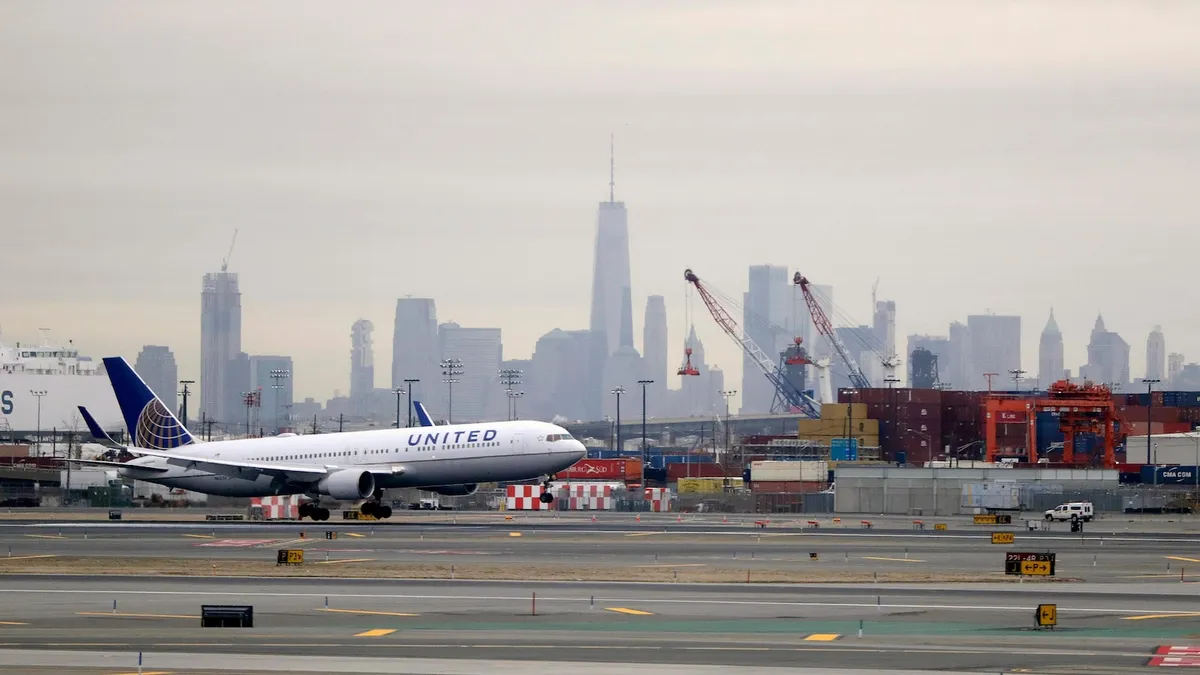
Passengers traveling to or from Newark Liberty International Airport experienced significant delays and cancellations on Saturday due to a severe shortage of air traffic controllers. This ongoing issue has been recognized as a nationwide problem that the Trump administration has committed to resolving. Over the past week, the busy airport located near New York City has encountered multiple disruptions that have frustrated travelers.
United Airlines has responded to the deteriorating situation by cutting 35 daily flights from its Newark schedule starting Saturday. According to United's CEO, Scott Kirby, the technology that manages aircraft at the New Jersey airport has failed repeatedly in recent days. The malfunctions have resulted in numerous flight delays, cancellations, and diversions, which were further exacerbated when over one-fifth of Newark's air traffic controllers "walked off the job."
Kirby emphasized the chronic understaffing of the air traffic control facility, stating that without adequate staffing, it is evident that Newark airport cannot accommodate the scheduled number of flights in the coming weeks and months. This assessment was communicated to customers in a letter from Kirby, highlighting the urgent need for action.
According to reports from the Federal Aviation Administration (FAA), staffing issues have led to average delays of nearly two hours for some arriving flights at Newark and approximately 45 minutes for departures. Two days prior, the airport had warned travelers about potential delays, citing both staffing shortages and ongoing construction as contributing factors.
The Trump administration has been actively working to "supercharge" the workforce of air traffic controllers in response to this crisis. On Thursday, U.S. Transportation Secretary Sean Duffy announced a new program aimed at recruiting additional controllers while providing incentives for existing staff to remain in their positions rather than retire. The National Air Traffic Controllers Association, a workers’ union, acknowledged that these initiatives could help mitigate staffing shortages but stressed that the system requires urgent upgrades in technology and infrastructure.
On Friday, Duffy visited air traffic controllers to discuss ongoing efforts to resolve equipment outages stemming from outdated technology. His engagement with the controllers underscores the administration's commitment to addressing these pressing issues.
United Airlines’ decision to reduce its flight schedule at Newark comes at a time of heightened uncertainty for U.S. airlines. Potential travelers are reconsidering their plans for business or leisure travel, largely due to the unpredictable effects of President Donald Trump's trade war on the economy. The level of uncertainty is so significant that United has taken the unusual step of providing two separate financial forecasts for the year: one assuming a recession and another assuming stable economic conditions.
As Newark Liberty International Airport continues to navigate these challenges, the focus remains on finding solutions to improve the air traffic control system and restore normalcy for passengers and airlines alike.